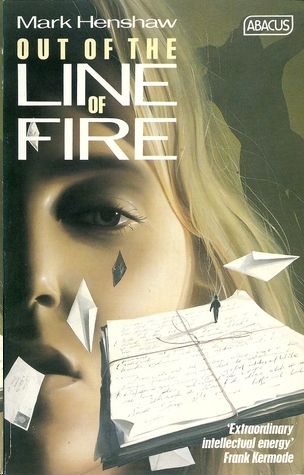
Out of the Line of Fire
Text Classics
فرمت کتاب
ebook
تاریخ انتشار
2014
نویسنده
Sara Douglassنویسنده
Gina Kell Spehnنویسنده
Sara Douglassنویسنده
Gina Kell Spehnنویسنده
Stephen Romeiشابک
9781925095463
کتاب های مرتبط
- اطلاعات
- نقد و بررسی
- دیدگاه کاربران
نقد و بررسی

Starred review from December 1, 2015
An Australian writer heads to Germany, where he gets strong doses of philosophy, violence, taboo sex, and unreliable narration. As Stephen Romei explains in his introduction, the debut novel by Henshaw (The Snow Kimono, 2015) divided readers in his native Australia when it was first published in 1988. It's not hard to see why. The heart of the story centers on Wolfi, a German scholar who (in documents given to the Australian narrator) relates his harsh upbringing by his cold, philosophical father, his erotic obsession with his sister, his lost virginity to a prostitute scheduled and paid for by his grandmother, and his involvement in shoplifting and an ill-fated attempt to shake down patrons of gay male prostitutes in Berlin. Dour and/or distasteful as all that might be (though the prostitute incident plays as an adolescent comedy of errors), Henshaw isn't going for shock value: Wolfi's memoir is a document that the narrator is picking apart and testing for accuracy, and the whole novel is a kind of study on the trustworthiness of narrative. The story is awash in references to deep-meta novelists like Italo Calvino, Albert Camus, and Peter Handke and philosophers like Wittgenstein and Heidegger, and there are regular asides about misperception and mistranslation. "The gap between fiction, between abstract speculation and so-called reality became blurred for me," the narrator writes, and the novel is remarkable for juggling its blend of sex, secrets, and philosophy without losing narrative force or structural integrity. Indeed, the closing chapters have real drama as the narrator attempts to uncover the truth about Wolfi's storytelling. The novel feels like an id laid bare, and Henshaw keeps the story in line while constantly pointing out the limitations of words to capture reality. A remarkable and brainy work of metafiction.
COPYRIGHT(2015) Kirkus Reviews, ALL RIGHTS RESERVED.

























دیدگاه کاربران